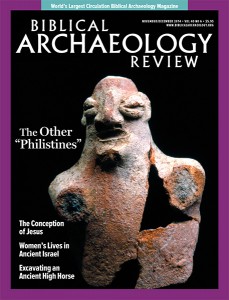
Sexual intercourse in order to conceive children is such a basic human activity that we sometimes assume that all cultures have had more or less the same ideas about it as we have. So in reading accounts of procreation and conception in the Bible, it is often simply taken for granted that these people operated within a framework where, though the giving of life may be traced back to God, the human male and female participants must both have made their genetic contribution to any resulting offspring. Once it is pointed out that our modern assumptions are just that—modern in the sense that they depend on a biological science that has only been available for a couple of centuries—and that ancient accounts of conceptions had their own literary conventions, interpreting Biblical texts relevant to the conception of Jesus becomes interestingly more complicated. At the same time, recognition of these differences sheds light on how ancients could think of the product of a virginal conception as human and how some would have had no difficulty combining an account of a virginal conception with a normal conception involving a human father.
Already a library member? Log in here.
Institution user? Log in with your IP address.

